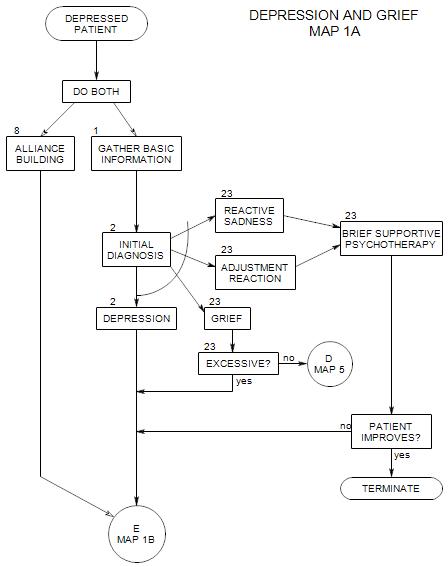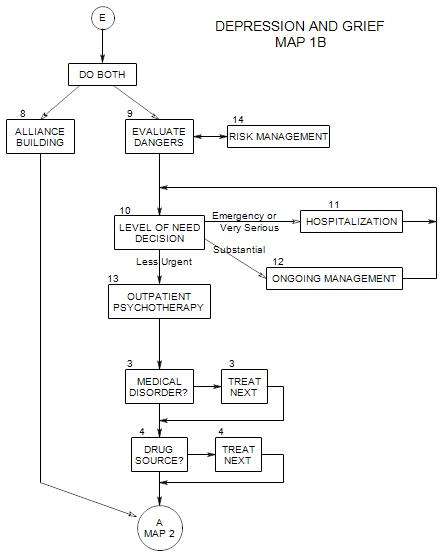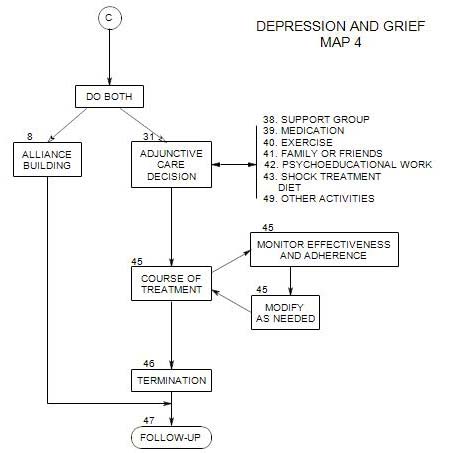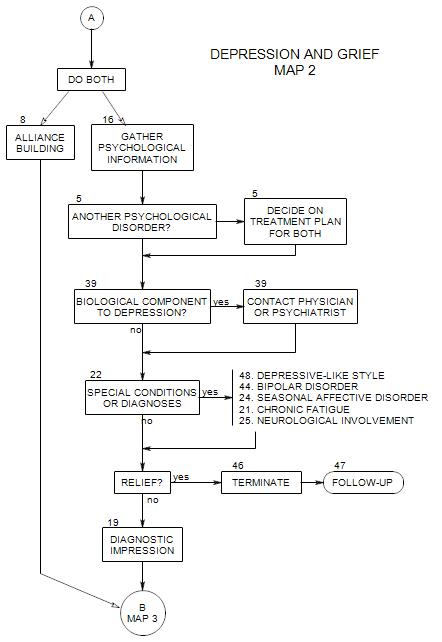
SECTIONS: 5 | 8 | 16 | 19 | 21 | 22 | 24 | 25 | 39 | 44 | 46 | 47 | 48
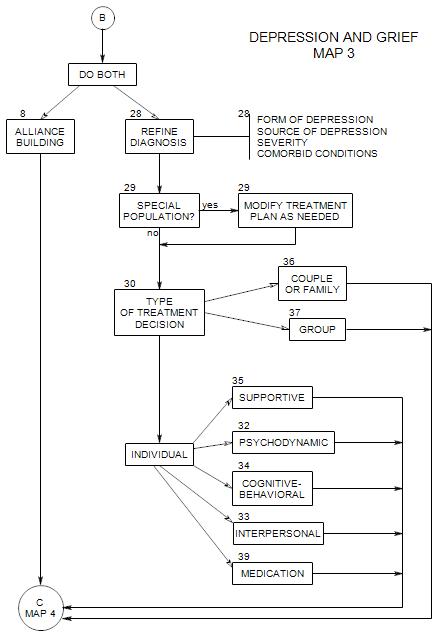
SECTIONS: 8 | 28 | 29 | 30 | 32 | 33 | 34 | 35 | 36 | 37 | 39
-
Follows from Section 30: [decision about form of treatment] on Map 3.
Centers around the functional relationships among thought processes and content, overt behaviors and mood disturbances. It aims to help patients learn to use more efficient means to cope with depression.
Generally used with mildly to moderately depressed patients who are not bipolar and not psychotic., usually in a 3-6 month time frame.
Thought contents are characterized by significant decreases in self deprecating, pessimistic, or apprehensive thoughts about the self, the world, and the future. They deal with automatic, negative thoughts about competence, being unlovable, and irrational beliefs.
34a. Theory and Treatment Issues
Behavioral therapy looks to the patient’s reinforcement history for sources of depression. It is likely that either…
- depression-inducing behavior has been learned and is being reinforced by the patient’s environment or behaviors [learned helplessness].
- the patient has a history of receiving insufficient reinforcement in his/her life, either because the environment was not adequately appreciative, or because he/she was unable to recognize and respond to reinforcement due to brain malfunctioning.
According to cognitive therapy , depression comes from unacknowledged negative schemas or assumptions.
- the schemas help a person establish the meanings of experiences
Depressed people make cognitive errors. They
- respond selectively to the negative aspects of an event
- make pessimistic generalizations
- misinterpret neutral comments as critical
- over-personalize
- make all-or-nothing assumptions
A depressed person makes pessimistic overgeneralizations. These are used to interpret any rejection or disappointment. He/she sees…
- ―him/herself as worthless
- ―the world as hostile
- ―the future as hopeless
- ―any misfortunes as judgments against him/herself
34b. Treatment
Change the environment, if possible.
Help the patient monitor his/her activities, find out which behaviors lead to rewards, arrange his/her life to get more rewards.
Develop a behavioral repertoire that protects from depression.
Help the patient unlearn learned helplessness
Assertiveness training
Social Skills Acquisition
As therapy progresses, areas of potential vulnerability are examined, identified and addressed, and relapse prevention techniques are practiced.
